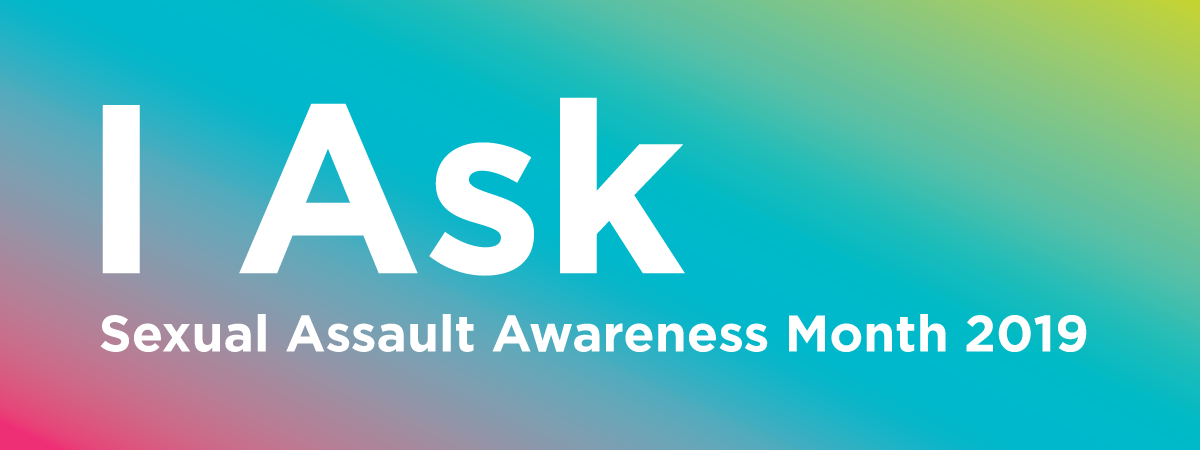
The #MeToo movement has confirmed what those of us doing anti-sexual violence work have known for years — that sexual violence is prevalent, it can happen to anyone, and the impact on survivors is long-lasting. For the general public, however, this information has been a wake-up call that has left many wondering what can be done to prevent another #MeToo story.
The good news is that we can prevent sexual violence – and together, we will. One way that everyone can get involved is by always respecting the personal and emotional boundaries of those around them. We can ensure that others’ boundaries aren’t crossed by asking for consent. While No Means No or Yes Means Yes messaging has been sharing the importance of consent for more than a decade, there is still a pressing need to not only normalize these conversations — but to also empower people to have them.
At its heart, Sexual Assault Awareness Month is about more than awareness – our ultimate goal is prevention. Since consent is a clear, concrete example of what it takes to end sexual harassment, abuse and assault, it only made sense that this year’s theme center on empowering all of us to put consent into practice. The campaign will champion the power of asking — whether it be asking to hold someone’s hand, for permission to share personal information with others, or if a partner is interested in sex. I Ask is the statement by which individuals will demonstrate that asking for consent is a healthy, normal, and necessary part of everyday interactions, and it will set an example for their partners, friends, and loved ones. I Ask is the statement by which we will uplift the importance of consent and transform it from being prescriptive to empowering.
Beyond Asking
Consent is about more than just asking — it is about listening to and accepting the answer without pressuring someone to change their mind. Last year, our Everyday Consent resource focused on how to practice consent in everyday situations, such as asking permission before posting photos of someone on social media. This year, we wanted to expand on that idea and think of all the nuanced ways that asking for consent shows up in our lives.
The campaign resources will discuss:
- How consent and respecting boundaries are a part of healthy relationships
- How to practice consent in digital and online interactions
- How parents can model asking permission and other healthy behaviors for children
- How power dynamics can impact consent
Next April, we’re envisioning countless communities and college campuses across the country uplifting those two transformative words. From events based around consent education to #IAsk taking over social media — we’re gearing up for our most visible and powerful SAAM campaign yet! We hope you’ll help share this prevention-focused message and join us in believing that empowering everyone to ask for consent can bring into focus a safer world for us all.
Next Steps
- Sign up to receive a SAAM Action Kit: The SAAM Action Kit will have everything you need to get your community engaged in raising awareness about preventing sexual assault and harassment. The kit includes sample resources, a campaign sticker, an event planning guide, a social media toolkit, a poster, and a merchandise overview. Kits will be mailed out later this fall.
- Take a look back at some powerful SAAM events that took place this past April and hear from the event organizers on their advice to those planning 2019 events: SAAM Community Events and SAAM Campus Events.
- Sign up for the SAAM mailing list to stay up to date with the latest campaign news.
- Follow NSVRC on Facebook and Twitter and check out #SAAM on Twitter for the latest campaign updates.
